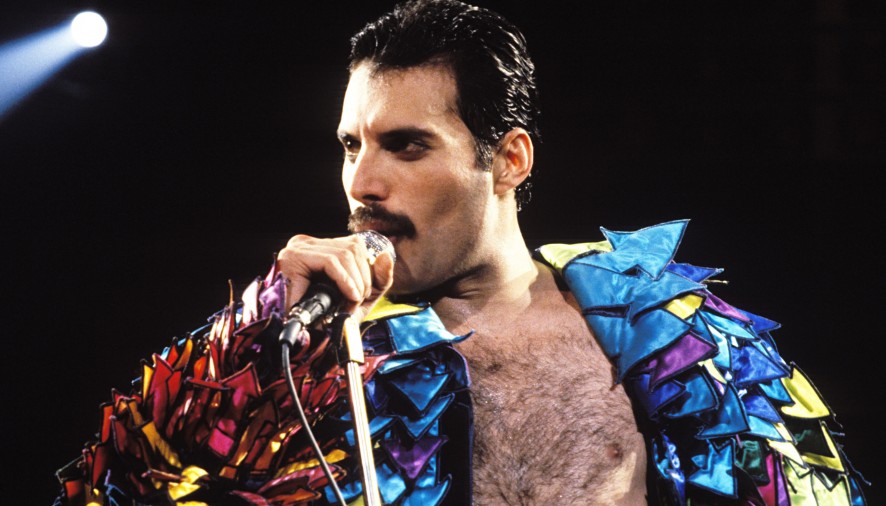Juliette Rowsell discusses how artists over the past 50 years have influenced and impacted on the LGBTQ* community.
February is LGBT History Month and the importance of music in bringing issues of greater social equality to the fore cannot be understated. When we can find little hope in our own lives, we look to music for liberation. David Bowie, Freddie Mercury and Elton John all redefined what it meant to be ‘normal’ and, in the process, helped to liberate anyone who didn’t fit society’s rigid expectations. In a world where there was no flexibility, no icons for the LGBTQ* community, they became not just stars in a musical sense, but of hope and inspiration too.
While LGBTQ* individuals have histroically been shunned from society, members of the community have often blazed trails on the musical scene. From Elton John and Freddie Mercury to Angel Haze and Frank Ocean in more recent times, they have not only dominated the charts but also produced some of the most forward-thinking records of recent times. Their ability to put a human face to the terms ‘homosexual’, ‘bisexual’, ‘pansexual’, helped challenge the discriminatory connotations for so long forced upon being ‘gay’. When some of the most beloved people on the planet are also the outcasts, then what did it mean to be part of the ‘mainstream’? The freaks were no longer freaks, but cool.
“I’m gay” David Bowie told Melody Maker in 1972, only five years after homosexuality was decriminalised in the UK, before later retracting this statement in 1976 when he claimed he was bisexual, he would then state he was a “closet heterosexual” in 1983. Bowie demonstrated to us that sexuality is fluid, and he opened the door for fellow LGBTQ* musicians, offering inspiration at a time when Freddie Mercury and Elton John were still in the closet, and Boy George still at school. Bowie’s ability to show us that there’s something incredibly human about feeling alien showed us it’s ok not to fit in. There’s a hero, an alien-starman that lies within all of us and we shouldn’t let society tell us otherwise.
Of course, that’s not to suggest that the musical establishment has always been progressive on LGBTQ* issues. The Kinks’ 1970 hit ‘Lola’ was banned for its description of a sexual encounter with a transgender woman and, in a time where LGBTQ* individuals were stigmatised as sexually perverse, lyrics like ‘girls will be boys and boys will be girls / it’s a mixed up muddled up shook up world’, challenged traditional expectations. People were beginning to see past the social constructs of ‘male’ and ‘female’, and the BBC wasn’t happy about it. Yet, while this may appear as a just another example of the silencing of a minority group, it helped build momentum for the LGBTQ* cause: it was clear that they were being inflicted to unfair discrimination.
Being gay in a world which tells you to be straight is hard, but musicians’ ability to hold two fingers up at the establishment provided much needed hope for LGBTQ* individuals. Musicians not only produce music, but they become heroes; we relate to them in a way that politicians can only dream of. Would David Bowie be the hero he is today if it wasn’t for is boldness to transcend all social boundaries? Would Freddie Mercury be as loved if it wasn’t for his flamboyant stage presence? While both produced some of the most iconic records of the last century, it was their ability to make the shocking acceptable that allowed them to surpass the limits of ‘musicians’ and become ‘stars’.
When Freddie Mercury donned a tight mini leather skirt, heels and a wig in Queen’s music video for ‘I Want to Break Free’, he was singing about more than just breaking free from the pain of a failed relationship. Mercury sings about the constraints of 80’s Britain and its rigid social values. He dreams of a world where gender and sexuality are not limitations, where people are ‘free’ to be who they want to be.
Whether you want to be a bisexual-alien-rock-star like Ziggy Stardust or an androgynous chameleon like Boy George, it has been musicians who have continually given us the confidence to be who we want to be and feel comfortable in our own skin. In showing us the superficiality in traditional expectations of men and women, they give us an insight into a future where gender and sexuality are no limitations.
Unfortunately, the world is not perfect, and in 2015, over 5,000 homophobic hate crimes were reported to the police in the UK. However, the actual figure of such crimes is suspected to be around four times higher than this as many still feel too afraid to report such crimes to the police. There is still a long way to go before equality is achieved. But the confidence and bravery of musicians over the past fifty years to be themselves in a world which tells them to do otherwise, reminds us how a rainbow can only appear after a storm. One day the LGBTQ* community will be able to break free, and they will have a lot to thank LGBTQ* musicians for this achievement.
Juliette Rowsell

